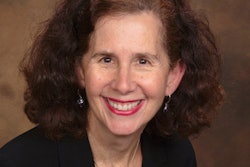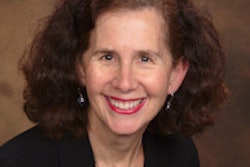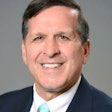
"I just spent an hour on the phone with my insurance company, and they told me to go to someone in network."
This phone call from a woman came in at 8 a.m., and she was due in the office at 9:30 a.m. What to do?
 Sheri B. Doniger, DDS.
Sheri B. Doniger, DDS.Actually, there is nothing to do.
Practices who take dental benefits are well familiar with this scenario. The dreaded "in-network" versus "out-of-network" reimbursement numbers.
Whereas an in-network dentist may receive 100% of preventive, 80% of restorative, and 50% of major dental work, out-of-network dentists may receive as little as 70% of preventive, 50% of restorative, and 30% of major reimbursement (the 70-50-30 plan). Yes, the benefit companies are trying to "feed" the patients over to their practitioners, but it does take away some of their choice of healthcare provider. It appeared that the agent this woman spoke to was adamant about not starting at our practice.
This woman called in at 8:00 to let us know she had spoken to her benefits company, and they suggested she look elsewhere, especially since she needed a crown. She was referred to our office by her fiancé, who truly loves our practice. His dental benefit is not that great, either, with a $1,000 yearly maximum, but he made the decision to stay at our practice.
Interestingly enough, we have several patients who are on this 70-50-30 plan who have continued treatment in our office. They had made the choice. This woman decided not to, even though her fiancé and his entire family do come here.
In reality, it is a dental practice's choice to accept dental benefit. Some practices are completely fee-for-service. More and more practices seemingly are steering away from taking plans because of the imagined restriction of potential dental treatment. Some patients will only work within the $1,000, $1,500, or $2,000 dental benefits maximum dollars, rather than focus on their comprehensive care.
Some offices do work with patients to both maximize their dental dollars and work within their allotted annual amounts. We all know it is the patient's needs that dictate treatment, not dental benefit amounts or a specific pile of money available.
In the end, we are responsible for the patient's oral health, regardless of what the dental benefit company dictates. A lot of dental education for our patients is needed to have them understand the difference between dental benefit and health insurance. They are not the same.
In the end, the woman chose not to come to our office, even though she had a dental emergency. "I know you are a great dentist," she said in parting. "I have to think about it. You know how locked in you are with this dental insurance."
Well, with an hour-and-a-half gap in our schedule now, I was able to do some catch-up administration work. This isn't the first time we have had this happen, and it surely will not be the last. The good news is that we had some time to do a few things in the office, and she will find dental care at another dental home.
Sheri B. Doniger, DDS, practices clinical dentistry in Lincolnwood, IL. She is the immediate past president of the American Association of Women Dentists and past editor of the American Association of Women Dentists "Chronicle" newsletter. She has served as an educator in several dental and dental hygiene programs, has been a consultant for a major dental benefits company, and has written for several dental publications. You can reach her at [email protected].
The comments and observations expressed herein do not necessarily reflect the opinions of DrBicuspid.com, nor should they be construed as an endorsement or admonishment of any particular idea, vendor, or organization.



















